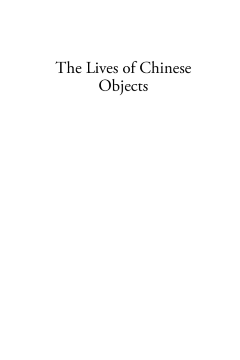
Additional Information
Book Details
Abstract
This is the biography of a set of rare Buddhist statues from China. Their extraordinary adventures take them from the Buddhist temples of fifteenth-century Putuo – China’s most important pilgrimage island – to their seizure by a British soldier in the First Opium War in the early 1840s, and on to a starring role in the Great Exhibition of 1851. In the 1850s, they moved in and out of dealers’ and antiquarian collections, arriving in 1867 at Liverpool Museum. Here they were re-conceptualized as specimens of the ‘Mongolian race’ and, later, as examples of Oriental art. The statues escaped the bombing of the Museum during the Second World War and lived out their existence for the next sixty years, dismembered, corroding and neglected in the stores, their histories lost and origins unknown.
As the curator of Asian collections at Liverpool Museum, the author became fascinated by these bronzes, and selected them for display in the Buddhism section of the World Cultures gallery. In 2005, quite by chance, the discovery of a lithograph of the figures on prominent display in the Great Exhibition enabled the remarkable lives of these statues to be reconstructed.
Louise Tythacott is the Pratapaditya Pal Senior Lecturer in Curating and Museology of Asian Art at the School of Oriental and Asian Studies (SOAS), University of London. She has worked in the museum sector for over a decade, latterly as the Head of Ethnology at the National Museums Liverpool (1996–2003), where she curated the Asia section of the World Cultures Gallery, which opened in 2005.
“Louise Tythacott’s monograph takes the reader on a mesmerizing journey through time and continents following the itineraries of five Buddhist sculptures dating back to the fifteenth century…the book offers a wealth of theoretical insights on a broad range of issues of relevance to museum studies, anthropology, and material culture scholars… Written in an accessible, yet never reductive narrative style, this study tells us much more than the story of a set of Chinese sculptures…The rigorous and accurate historical research over an exceptionally extended period of time, and the very effective synergy of historical, anthropological, museological, and curatorial approaches, insights, and research tools, are what make this book unique, and highly recommended reading not only for Asia scholars, but also for anyone interested in the role that objects play in processes of knowledge and value creation.” · JRAI
“All in all, this is an excellent and thoroughly researched investigation. The most impressive aspect of the work lies in the author’s continual critical reflexivity and sometimes even self-criticism, which adds to the thoroughness of her investigatory project.” · International Journal of Heritage Studies
“Tythacott is at her best when she describes the truly impressive investigative work that she marshaled to gather information about the Putuo Five….a valuable set of bronze sculptures created by artisans, worshipped by the devout, pillaged in war, displayed triumphantly, sold for a profit at auction. [that] ended up nearly forgotten in the basement of a Museum…The book is nearly a text in the area of reconstructing past lives (of people and objects), and is both impressive and entertaining in this regard.” · Visual Anthropology Review
“…a well-written and carefully researched biography of five Buddhist statues that, through the course of their long journey from China to Liverpool, had very public lives… With its comprehensive bibliography and detailed notes, this book has wide appeal to include those interested in Chinese material culture, British images of China in the nineteenth century, early reception of Buddhist art in the west, and the history of museum practice and theory.” · Journal of the History of Collections
“Academically engaging and eminently readable, Tythacott’s work deftly demonstrates the value of taking a biographical approach to museum objects.” · Journal of Museum Ethnography
“The Lives of Chinese Objectsis a fascinating book. It is the result of excellent historical research as well as curatorial expertise. The reader is taken on an amazing journey starting with the startling discovery of the image of five Chinese bronzes on display as part of the Great Exhibition in 1851…The stories uncovered are riveting, a mix of curatorial detail and description, historical research and theoretical analysis. This book is beautifully written – clear, detailed and informative. The author is ever present in the text and the book is as much a story of her journey, as it is a story of the lives of the ‘Putuo Five’. I just wanted to keep reading.” · Suzanne MacLeod, University of Leicester
